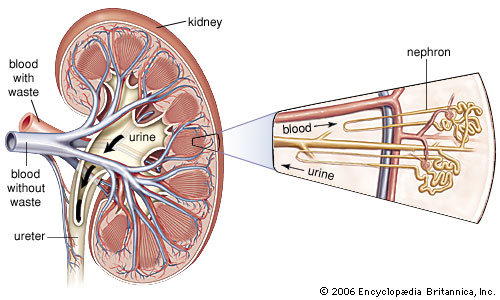 01. If the Nephrons in both kidneys are taken out and placed end to end horizontally, they will cover a distance of 16 kilometers.
01. If the Nephrons in both kidneys are taken out and placed end to end horizontally, they will cover a distance of 16 kilometers.
02. If one kidney is taken away and the functional capacity of the other kidney is reduced to just 75%, it can still sustain life. This happens because the Nephrons are capable of enlarging and handling excess load. This is known as hypertrophy.
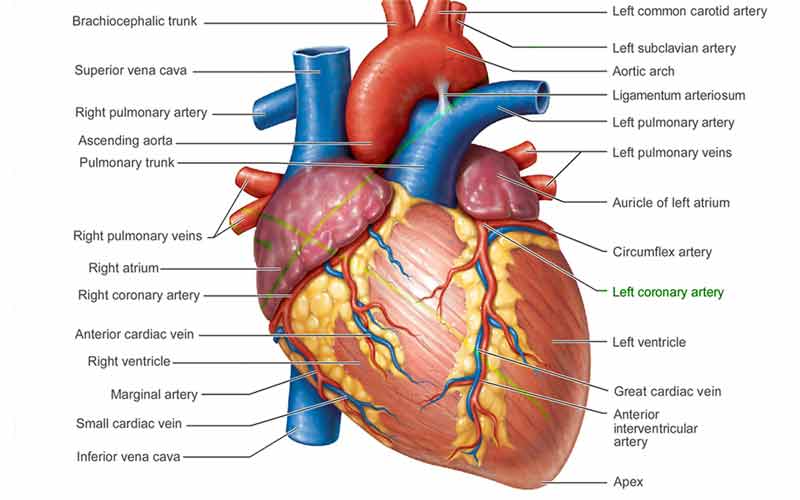 03. Kidneys are responsible for maintaining a constant amount of fluid in the body. The entire blood in the body gets filtered around 400 times in a day through the kidneys.
03. Kidneys are responsible for maintaining a constant amount of fluid in the body. The entire blood in the body gets filtered around 400 times in a day through the kidneys.
04. When dehydration sets in, kidneys stop producing enough urine until hydration is restored and blood volume increases.
05. If the blood pressure in kidneys fall, they start sending out signals to the rest of the body. As a result of these signals, the blood vessels throughout the body become smaller to increase the pressure. This ensures that blood reaches every part of the body.
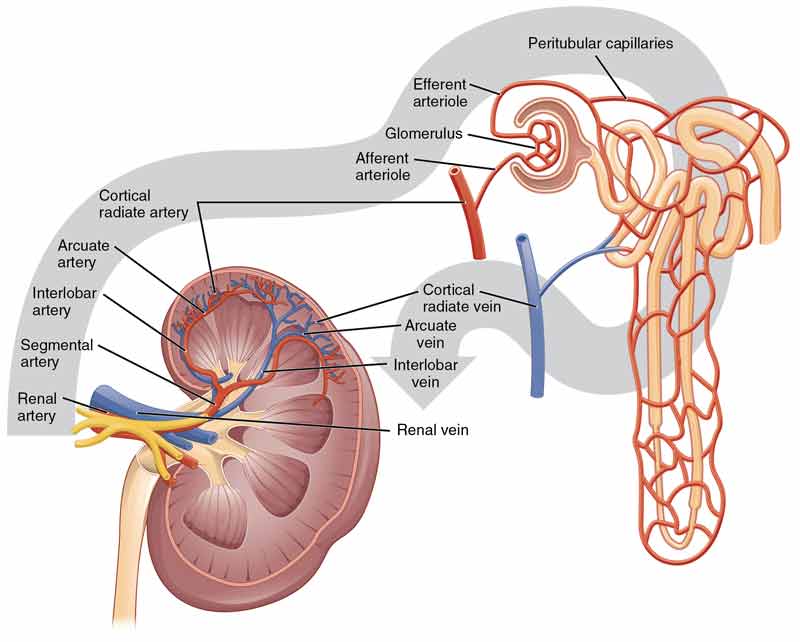 06. If the oxygen content of the blood falls, the kidneys can sense that as well. Once the kidneys sense a lack of oxygen, they create a hormone which triggers increased production of red blood cells. RBCs are responsible for carrying oxygen. As RBC count increases, the oxygen content of the blood also increases.
06. If the oxygen content of the blood falls, the kidneys can sense that as well. Once the kidneys sense a lack of oxygen, they create a hormone which triggers increased production of red blood cells. RBCs are responsible for carrying oxygen. As RBC count increases, the oxygen content of the blood also increases.
07. Kidneys pump around 400 gallons of recycled blood every day.
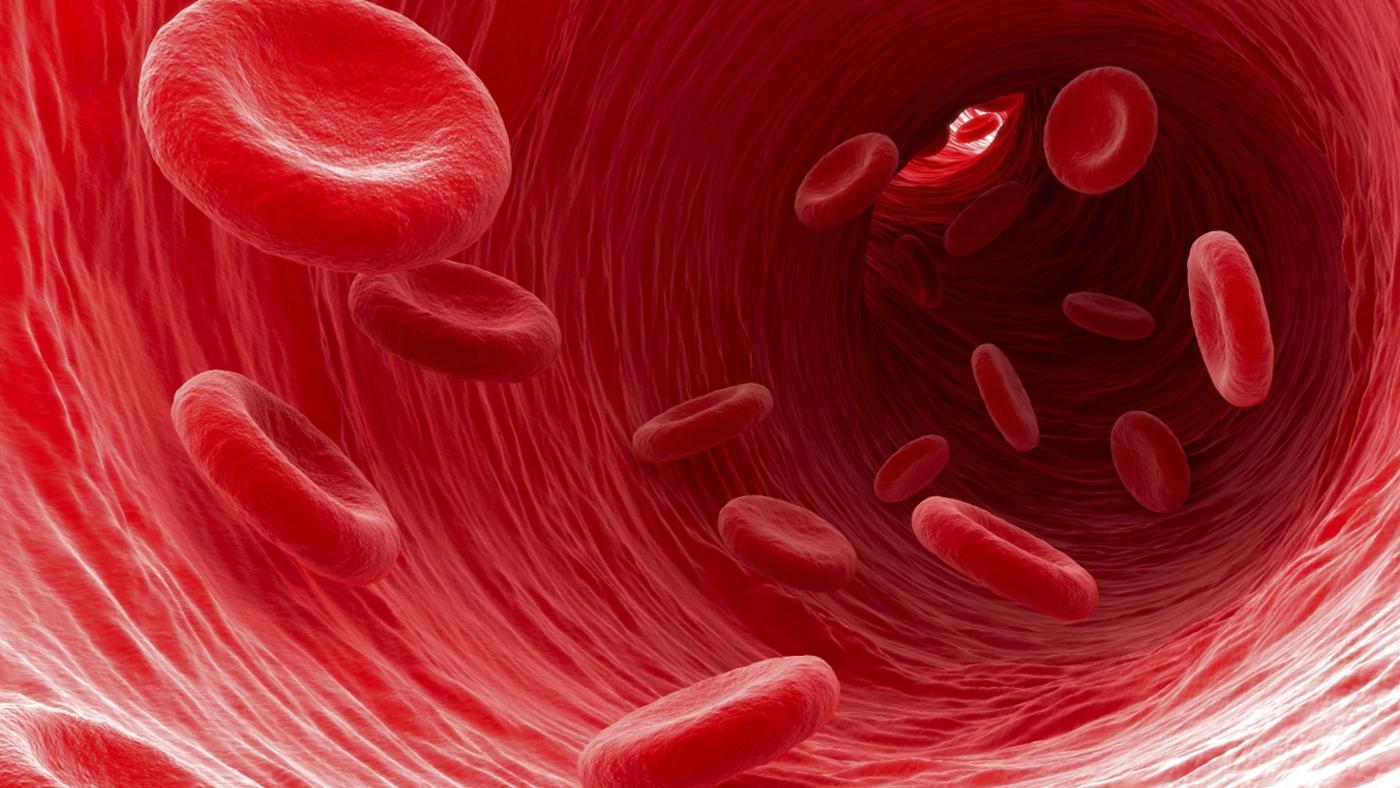 08. Kidneys filter and return around 200 quarts of fluid into the bloodstream each day. Nearly 2 quarts are lost in form of urine while the remaining 198 quarts are recovered.
08. Kidneys filter and return around 200 quarts of fluid into the bloodstream each day. Nearly 2 quarts are lost in form of urine while the remaining 198 quarts are recovered.
09. Kidneys are connected to bladder with the help of two tubes known as ureters. It is the bladder where the urine is stored. The urine that we excrete is stored anywhere between 1 and 8 hours. Interesting fact is that we don’t urinate until the bladder is half full. Once the half of the bladder is full, signals are sent to the brain which in turn tells us that it is time to urinate.
10. Yet another interesting fact about kidneys is that they are capable of activating vitamin D in our body. This vitamin is usually produced by special skin cells when they are exposed to sunlight. If the skin fails, the job passes on to the livers. If the liver fails, the job finally goes to the kidneys.
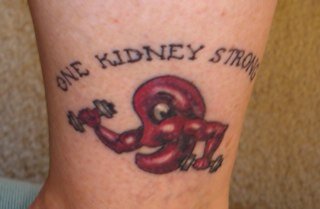 11. Some children are born with only one kidney. For them, the single kidney eventually grows to the extent where its weight is equal to the combined weight of two kidneys.
11. Some children are born with only one kidney. For them, the single kidney eventually grows to the extent where its weight is equal to the combined weight of two kidneys.
12. Excessive antacids and milk can cause kidney stones.

















